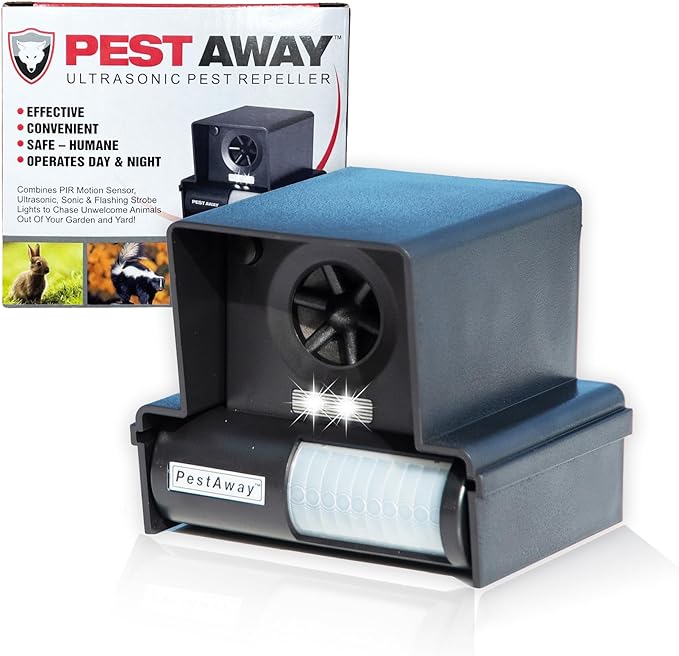
Bears
Black bears may be active at any time of the day or night, although they mainly forage by night. Bears living near human habitations tend to be more extensively nocturnal
Predator Advice
HOW TO GET RID OF BEARS ON YOUR PROPERTY
As black bear numbers increase in some North American communities and more people move into bear habitat, encounters between bears and people have risen.
Bears are normally wary of people, but if a bear finds food without getting frightened away, he may come back for more. Each time this happens, he can become less fearful—and this habituation can lead to problems. Conflicts can heighten during hyperphagia, a feeding frenzy in late summer and fall in which bears bulk up for hibernation, gaining 3-4 pounds and consuming 20,000 calories a day.

STEP ONE
Remove Attractants
The first step to getting the bears off your property is to remove anything that may be attracting them in the first place. All animals are in search of food, shelter, or water, so keep that in mind. This is not an extensive list, as there are many food sources that may be present in your yard, such as fall fruit.
Some things that attract bears to your home:
•Hummingbird Feeders
•Bird Feeders
•Trash
•Human Food
•Livestock Feed/Pet Food
•Access to Water
Additionally, bears are inquisitive and intelligent animals. It's not uncommon to catch one playing with your wind chimes or getting into your patio furniture.
Guides & FAQs
To avoid habituating the bears in your area, follow these steps.
Make trash cans and recyclables inaccessible. Use an elastic bungee cord to secure trash can lids or purchase bear-resistant trash cans. For added security store trash can inside a shed or garage. The use of strong scent deterrents will help repel bears from trash cans. Spray the area with Ammonia or use a ready to spray repellent product like Expel Natural Animal Repellent Spray.
Enclose your compost pile. Open compost piles, especially those that include kitchen scraps, are irresistible to bears. Burying compost won’t work as bears will easily find and dig it up.
Keep your barbecue grill clean and as free of drippings as possible. Move the grill away from your house when you aren’t using it, and clean it regularly with ammonia or bleach.
Rethink your bird feeders. In the summer, birds can make do with naturally available foods. If you do set up feeders, install them away from your house and trees and 10 feet off the ground.
Bee Hives. To minimize damage to hives, apiaries in occupied habitat should be protected using electric fences. Electric fencing has been shown to be almost 100 per cent effective in deterring bear damage. Compact apiaries are easier to protect with electric bear-resistant fencing than those scattered over a larger area, so beekeepers should consolidate hives to form the smallest apiary that can be practically managed.
Flashing light technology has proven effective in deterring night activity by bears. Predator Guard deterrent lights with their twin LED flashing lights look like the eyes of another predator in the darkness. As a result, wild animals feel fear and look elsewhere for food and shelter.
If you see a black bear in your yard, don’t fear the worst. A youngster may simply be passing through in search of a home of his own. Or an adult may be checking out an enticing smell or interesting sound. Usually when he finds out there are people around, he’ll head for the hills, never to be seen again.
If you do encounter a bear, remain calm and remember that the bear is likely more scared of you than you are of him. Attacks by black bears on people are very rare and most black bears are easily scared away with the following approach:
•Stand and face the bear directly. Never run away from or approach him.
•Make yourself look as big as possible by spreading your arms or, better yet , a coat.
•Make as much noise as possible by yelling, banging pots and pans or using other noisemaking devices.
•If the bear approches and you have bear spray, spray the bear as he approaches. Spraying bears with a garden hose is also effective.
•In the very rare case that a black bear does attack you, fight back with rocks or sticks (don't play dead).
•After the bear leaves, remove whatever attracted him to the location ( barbecue grill, bird feeder, pet food, or garbage).
Remain calm. Show that you are human by raising your arms and talking to it gently. Gently back away. Do not turn around or run, a bear will outpace you. Try to avoid eye-contact, as this can be seen as a sign of aggression.
If a grizzly bear charges you in a defensive manner, with its head low and ears back. Stand your ground. Most defensive charges stop short. Try to show you’re not a threat. If a grizzly bear makes contact with you or stalks you, play dead. Lie on your stomach or curled up in the fetal position and lace your hands behind your neck. Don’t move until you are certain the bear has left the area.
Recommended Products
Our Top Picks
Blog posts

A quick and easy line of defense against common predators

This can repel nocturnal pests and predators

6 Pest Control Products You Can Find on Amazon
Contact us
Call Us:
800-537-4182
E-Mail Us:
support@predatorguard.com







